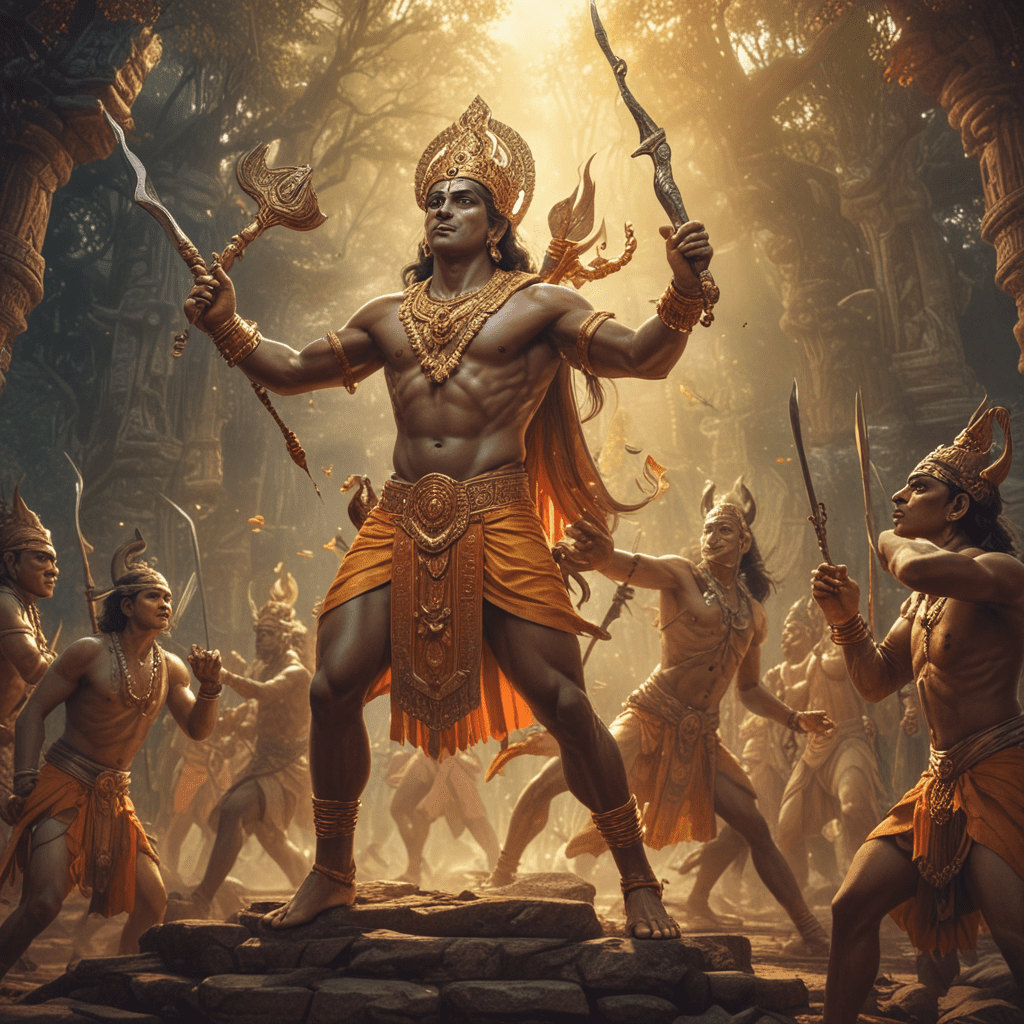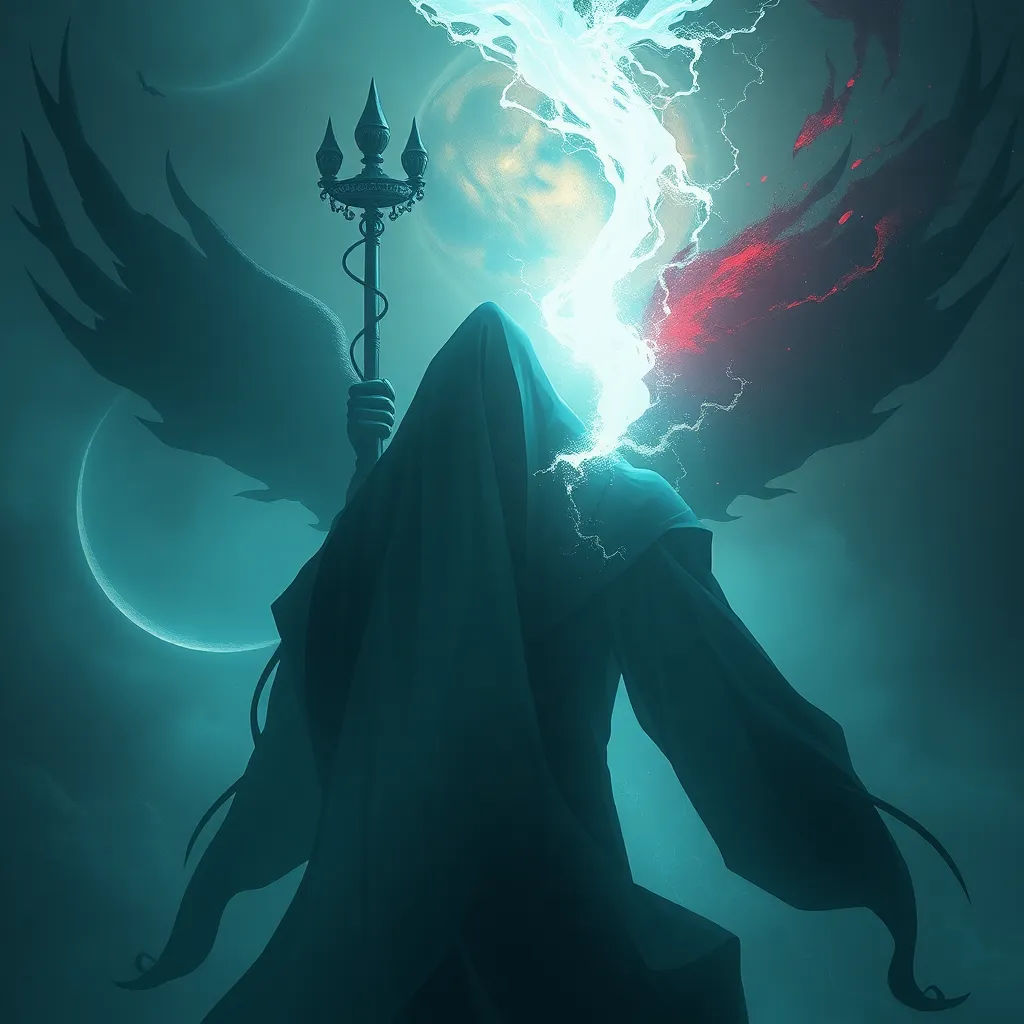The Sacred Falcon: Spiritual Guides in Ancient Myths
1. Introduction to the Sacred Falcon
The significance of falcons transcends mere physical attributes; they embody a range of spiritual meanings across various cultures. Often revered for their keen eyesight, speed, and hunting prowess, falcons are seen as messengers between the earthly and the divine. Their ability to soar high in the sky symbolizes freedom, enlightenment, and the pursuit of higher truths.
Birds, particularly falcons, have been integral to spiritual beliefs and mythology. They symbolize transformation and the connection between the material and spiritual worlds, serving as guides for those seeking knowledge and understanding.
2. The Falcon in Ancient Egyptian Mythology
In ancient Egyptian mythology, the falcon is most prominently represented by the god Horus, who is depicted as a falcon-headed figure. Horus symbolizes kingship, protection, and the sky, embodying the pharaoh’s divine right to rule.
- Role of Horus: As a protector of the pharaoh and the embodiment of the heavens, Horus played a crucial role in the spiritual and political life of ancient Egypt.
- Symbolism: The falcon was seen as a symbol of protection, often associated with the sun and the concept of eternal life.
- Art and Architecture: Falcon imagery is prevalent in Egyptian art, with representations found in temple carvings, tomb paintings, and jewelry.
3. Falcons in Indigenous Mythologies
Indigenous cultures across the Americas have revered falcons for their strength and grace. Among Native American tribes, falcons are seen as powerful spiritual beings.
- Symbolism: Falcons often symbolize vision, power, and focus, guiding individuals in their spiritual journeys.
- Creation Myths: Many tribes incorporate falcons into their creation myths, viewing them as integral to the balance of nature.
- Spiritual Practices: Rituals involving falcons, such as feather offerings and totemic representations, highlight their spiritual significance.
4. The Falcon in Greco-Roman Mythology
In Greco-Roman mythology, falcons are closely associated with the goddess Athena, known for her wisdom and strategic warfare.
- Athena and Falcons: Falcons are often seen as symbols of intelligence and foresight, attributes that align with Athena’s nature.
- Falconry: The practice of falconry was esteemed in ancient Rome and Greece, symbolizing nobility and the bond between humans and birds.
- Mythical Attributes: Myths often feature falcon deities, illustrating their attributes of speed, precision, and heightened perception.
5. The Falcon as a Symbol of Freedom and Ascension
Falcons are frequently portrayed as symbols of freedom, ascension, and spiritual enlightenment in various mythologies.
- Spiritual Guides: The falcon serves as a spiritual guide, leading individuals toward higher consciousness and self-discovery.
- Flight Interpretations: The act of flying is often seen as a metaphor for liberation from earthly constraints.
- Transformation Stories: Numerous myths recount tales of individuals transformed through the guidance of a falcon, signifying personal growth and enlightenment.
6. The Role of the Falcon in Celtic Mythology
Celtic mythology features several falcon-related deities, each embodying unique attributes and significance.
- Celtic Deities: Deities like Manannán mac Lir are associated with falcon symbolism, representing the connection between the land and the sky.
- Art and Storytelling: Falcons appear in Celtic art and legends, often symbolizing nobility and the warrior spirit.
- Spiritual Practices: Ancient Celts engaged in rituals honoring falcons, recognizing their role as messengers of the divine.
7. The Sacred Falcon in Asian Mythologies
Falcons hold significant roles in various Asian spiritual traditions, symbolizing divine communication and insight.
- Hindu and Buddhist Traditions: In Hinduism, falcons are associated with the sun and are believed to provide clarity and wisdom.
- Chinese Folklore: Myths often depict falcons as messengers of good fortune and protectors against evil spirits.
- Divine Messengers: Falcons are seen as intermediaries between humans and the divine, conveying important messages in various cultures.
8. The Falcon in Modern Spirituality and New Age Beliefs
Ancient beliefs regarding falcons have influenced contemporary spiritual practices, making them relevant in modern contexts.
- Spirit Animals: The falcon is often regarded as a spirit animal, symbolizing vision, power, and focus in personal growth.
- Modern Rituals: Many New Age practices incorporate falcon symbolism, emphasizing its role in guiding spiritual journeys.
- Integration of Symbols: The characteristics of the falcon are integrated into modern beliefs about personal empowerment and higher consciousness.
9. Artistic Representations of the Falcon Throughout History
The falcon’s symbolism is prevalent in art across various cultures, representing different aspects of spirituality and mythology.
- Symbolism in Art: Falcons have been depicted in paintings, sculptures, and textiles, often symbolizing freedom and nobility.
- Famous Artworks: Notable artworks featuring falcons illuminate their significance in cultural narratives.
- Evolution of Imagery: The representation of falcons has evolved, reflecting contemporary interpretations of their symbolism.
10. Conclusion: The Enduring Legacy of the Sacred Falcon
The falcon’s role as a spiritual guide in ancient myths underscores its enduring legacy across cultures. From protection and kingship in ancient Egypt to freedom and enlightenment in modern spirituality, the falcon continues to resonate as a powerful symbol of transformation and higher understanding. As we navigate our spiritual journeys, the sacred falcon remains a timeless guide, reminding us of our potential to rise above and seek the divine.



